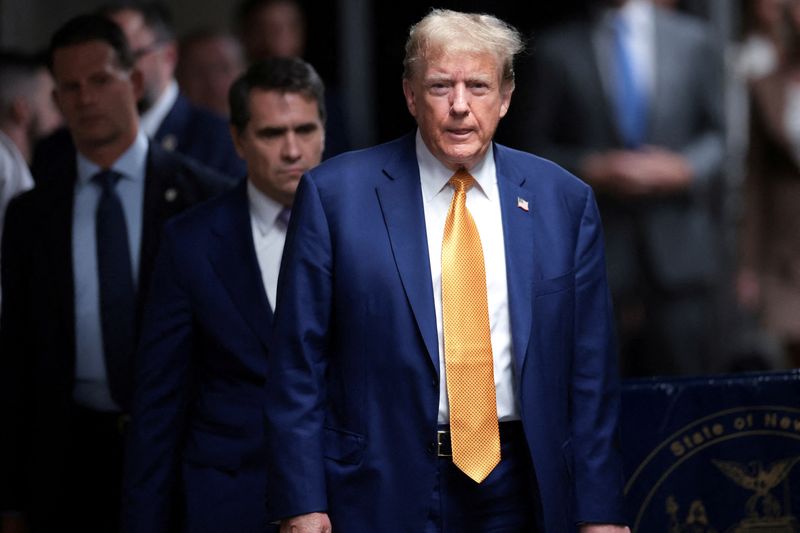(Reuters) – Lawyers for Donald Trump on Monday asked a federal judge to reject prosecutors’ request for a gag order limiting what the former U.S. president can say about law enforcement officers involved in the case accusing him of mishandling sensitive documents.
Trump’s team also asked U.S. District Judge Aileen Cannon in Fort Pierce, Florida, to impose sanctions and pursue civil contempt findings against “all government attorneys who participated in the decision to file the motion.”
In the documents case, one of four criminal prosecutions of Trump, prosecutors have brought 40 counts of illegally retaining sensitive national security documents after leaving office. Trump has asserted his right to retain them.
On Friday, prosecutors asked Cannon to review Trump’s bail conditions and issue an order to prevent him from making statements that pose a danger to law enforcement.
Special Counsel Jack Smith said the request was necessary because of several “intentionally false and inflammatory statements” that Trump made recently about the FBI search of his Mar-a-Lago golf resort in Florida in August 2022.
Trump, the Republican challenger to Democratic President Joe Biden in the Nov. 5 election, has falsely claimed in fundraising messages sent by his campaign that the FBI was authorized to attempt an assassination.
Smith argued that Trump’s mischaracterizations have endangered law enforcement officers and that limiting such comments does not restrict legitimate speech.
In Monday’s filing asking the judge to reject the gag order, Trump lawyers Todd Blanche and Christopher Kise accused prosecutors of “bad-faith behavior” by rushing to file the request on a Friday night before a holiday weekend and of failing to give the defense team sufficient time to discuss it before filing, violating local court rules.
The defense team said that violation should merit sanctions against prosecutors, including possible payment to cover expenses incurred as a result.
The defense also argued that prosecutors’ request for a gag order itself unfairly limits Trump’s free speech rights in the election campaign.
There was no indication from the court file when Cannon would rule on the motions from each side.

Trump’s criminal trial in New York, on charges that he falsified business records to cover up a hush-money payment to porn star Stormy Daniels before the 2016 election, is scheduled to resume on Tuesday with closing arguments.
Trump also faces charges in Washington and Georgia over attempts to overturn his 2020 election loss to Biden.
To read the full article, Click Here

